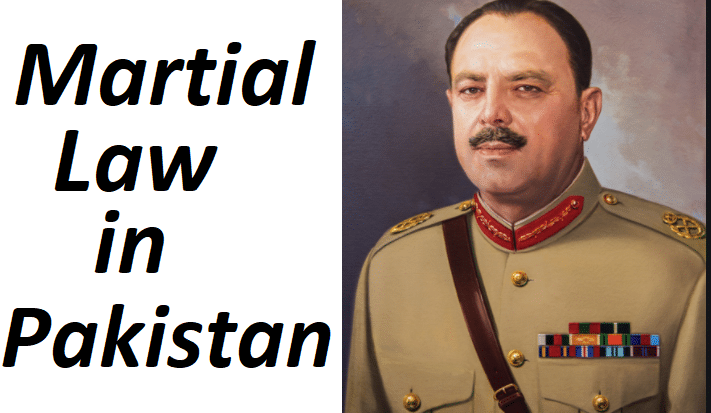The imposition of martial law in Pakistan has been a controversial issue since the country’s independence in 1947. There have been four periods of martial law imposed in Pakistan, the first being after the country’s independence in 1947. President Ayub Khan imposed the second period of martial law in 1958. President Zia-ul-Haq imposed the third period of martial law in 1977. President Musharraf imposed the fourth and most recent period of martial law in 1999.
Martial law is a system of government that gives complete military control over the country. The civilian government, parliament, and judiciary are suspended, and the military takes over. Martial law is usually imposed in times of emergency, such as war or civil unrest.
Pakistan has a history of military coups, and martial law in Pakistan has often been used as a tool by the military to take over the government. President Musharraf imposed the most recent period of martial law in 1999 after he seized power in a military coup. Musharraf claims that martial law was necessary to restore order and stability to Pakistan, which is facing several severe challenges, including an economic crisis, rising crime, and increasing militancy.
Martial law has been criticized by many as a violation of human rights. It is also seen as a tool used by the military to control the civilian population and suppress dissent. Nevertheless, there have been several protests and demonstrations against martial law in Pakistan, and it remains a highly controversial issue.
List of Martial Laws in Pakistan
Below is the list of Martial Laws in Pakistan:
First Martial Law in Pakistan:
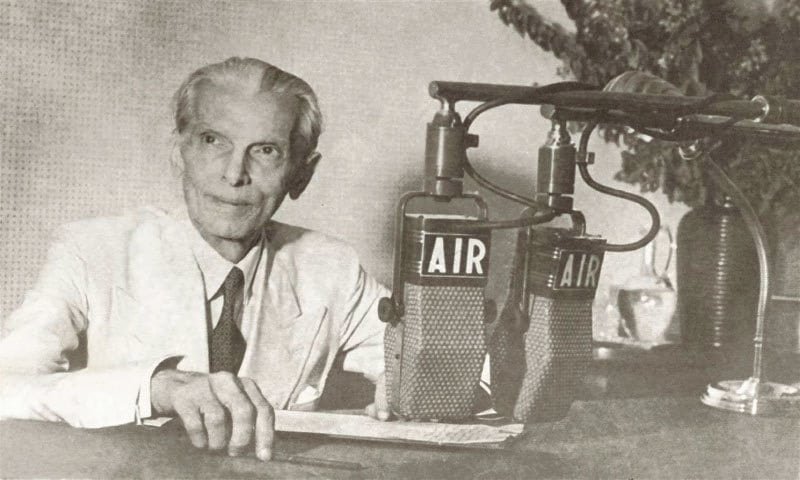
Pakistan’s first martial law was imposed in 1947, immediately after the country’s independence. This was done to maintain law and order from British rule to independence. The martial law lasted for two months and was lifted in August 1947.
Second Martial Law in Pakistan:
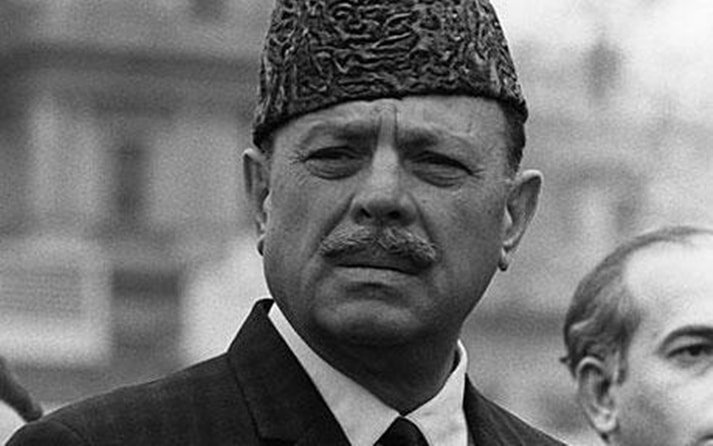
President Ayub Khan imposed the second martial law in 1958. This was done in response to the political turmoil and unrest taking place at the time. The martial law lasted for two years and was lifted in 1960.
Third Martial Law in Pakistan:
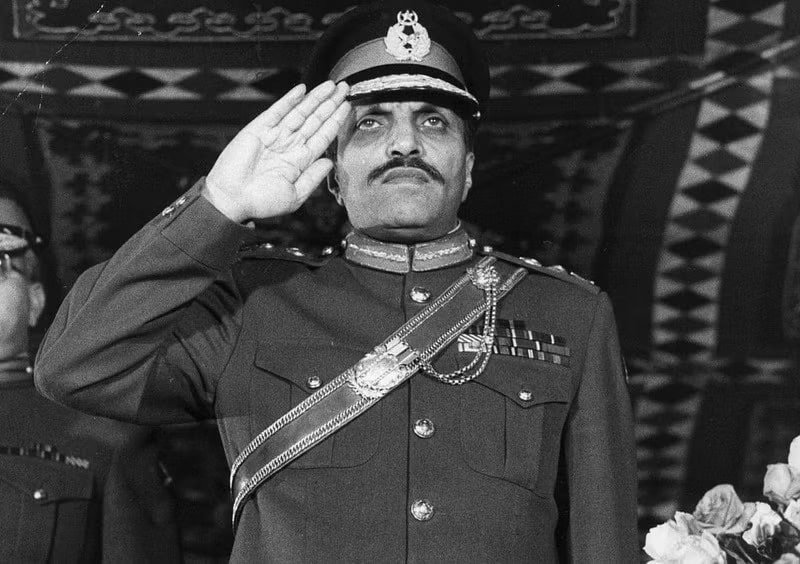
President Zia-ul-Haq imposed the third martial law in 1977. This was done in response to the political turmoil and unrest taking place at the time. The martial law lasted for three years and was lifted in 1980.
Fourth Martial Law in Pakistan:
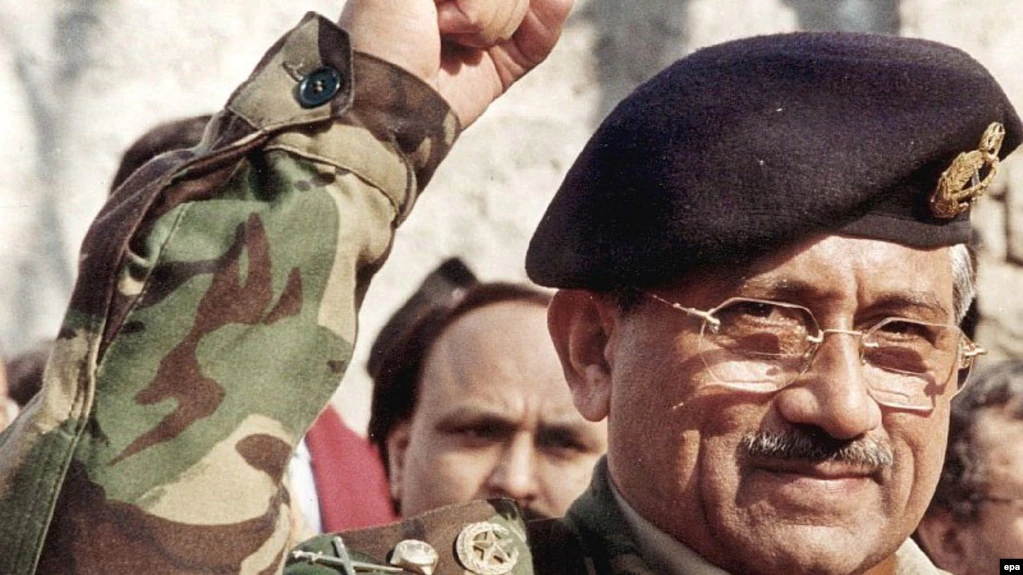
President Musharraf imposed the fourth and most recent martial law in 1999. This was done after he seized power in a military coup. The martial law lasted for two years and was lifted in 2001.
Martial law is a controversial issue in Pakistan. There have been several protests and demonstrations against martial law, and it remains a highly controversial issue.
Military Coups in Pakistan:
1958 Coup:
The first martial law was imposed in Pakistan in 1958 by President Iskander Mirza, who seized power in a military coup. Martial law was imposed to stabilize the country and restore order after a period of political instability.
All political parties were banned during this time, and several political leaders were arrested and detained. The media was also censored, and there were restrictions on freedom of speech and assembly. In addition, many civil liberties were suspended, including the right to habeas corpus.
Martial law was in effect for two years until President Mirza was ousted in another military coup by General Ayub Khan.
1977 Coup:
The third martial law was imposed in 1977 by President Zia-ul-Haq, who came to power in a military coup. Martial law was imposed to restore order and stability to Pakistan, which faced many serious challenges at the time, including an economic crisis, rising crime, and increasing militancy.
All political parties were banned during this time, and several political leaders were arrested and detained. The media was also censored, and there were restrictions on freedom of speech and assembly. In addition, many civil liberties were suspended, including the right to habeas corpus.
Martial law was in effect for three years until it was lifted in 1980.
1999 Coup:
The fourth and most recent martial law was imposed in 1999 by President Musharraf, who seized power in a military coup. Musharraf claims that martial law was necessary to restore order and stability to Pakistan, which was facing some serious challenges, including an economic crisis, rising crime, and increasing militancy.
All political parties were banned during this time, and many political leaders were arrested and detained. The media was also censored, and there were restrictions on freedom of speech and assembly. In addition, many civil liberties were suspended, including the right to habeas corpus.
Martial law was in effect for two years until it was lifted in 2001. Musharraf then introduced a new constitution, which gave him sweeping powers and effectively made him a dictator. He remained in power until he was ousted in 2008 by a pro-democracy movement.
Martial law has been a controversial issue in Pakistan, and it remains a highly polarizing topic. However, there are several pros and cons to martial law, discussed below.
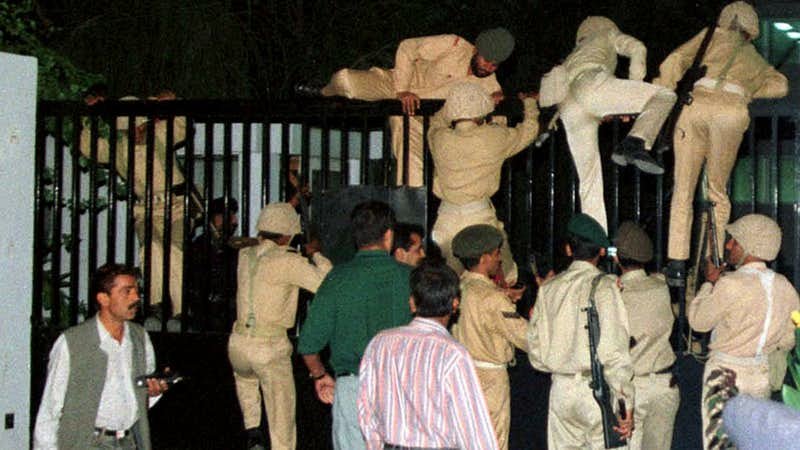
Pros of Martial Law:
- Martial law can be an effective tool for restoring order and stability in a country facing serious challenges.
- Martial law can help to quell civil unrest and violence.
- Martial law can crackdown on crime and militancy.
- Martial law can help to restore economic stability.
- Martial law can be used to control the media and censor information.
- Martial law can be used to arrest and detain political leaders.
- Martial law can be used to suspend civil liberties.
Cons of Martial Law:
- Martial law is a violation of human rights.
- Martial law is seen as a tool used by the military to control the civilian population and suppress dissent.
- Martial law can lead to a breakdown in the rule of law and increased militancy.
- Martial law can exacerbate economic problems.
- Martial law can be used to silence political opponents and restrict freedom of expression.
- Martial law can be used to justify human rights abuses.
- Martial law can lead to the militarization of society.
Conclusion:
Martial law is a controversial issue in Pakistan, and there are many pros and cons to it. Ultimately, the decision to impose martial law is political, and it should only be used in exceptional circumstances. If you want to know more about martial law, you can call us without hesitation.
Faqs:
1. What is martial law in Pakistan?
Martial law is a state of emergency in which the military takes over the country’s administration. Martial law has been imposed four times in Pakistan, most recently in 1999 by President Musharraf.
2. Who has the power to declare martial law in Pakistan?
The President of Pakistan can declare martial law with the approval of the Prime Minister and the Cabinet.
3. What are the effects of martial law in Pakistan?
The effects of martial law vary depending on the specific situation. Still, generally speaking, martial law leads to a suspension of civil liberties, the arrest and detention of political leaders, the censorship of the media, and restrictions on freedom of speech and assembly. Martial law can also be used to crack down on crime and militancy.
4. How long does martial law last in Pakistan?
Martial law can last indefinitely, although it is typically lifted after a few months or years. In Pakistan, martial law has been imposed four times, with the most extended period lasting three years (from 1977 to 1980).
5. Has martial law been declared more than once in Pakistan?
Yes, martial law has been declared four times in Pakistan. The most recent instance was in 1999 by President Musharraf.
6. Is there a difference between martial law and military rule?
Yes, there is a difference between martial law and military rule. Martial law is imposed in times of emergency, while the military rule is when the military permanently takes over the country’s administration. In Pakistan, martial law has been imposed four times, but the country has never been under military rule.

